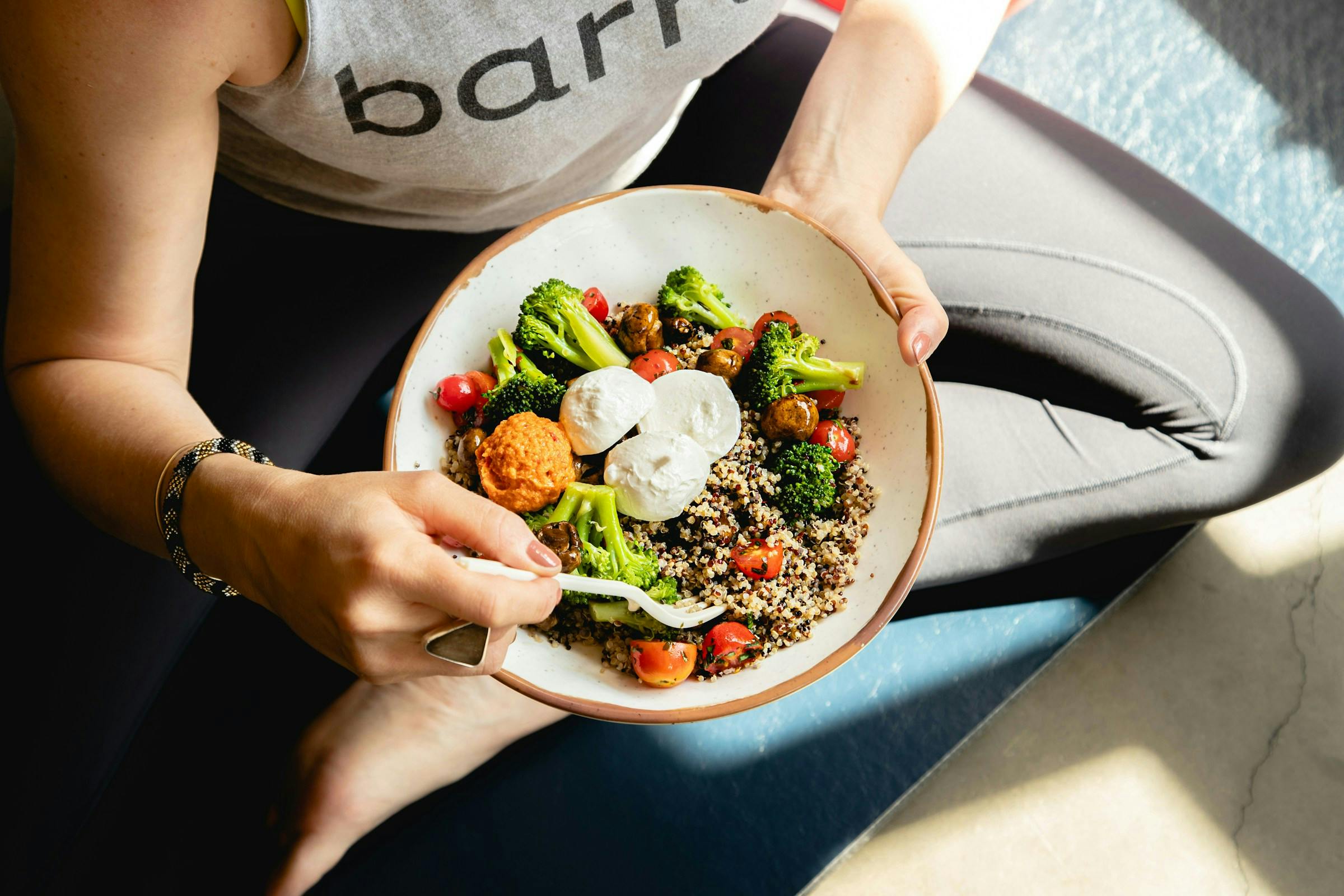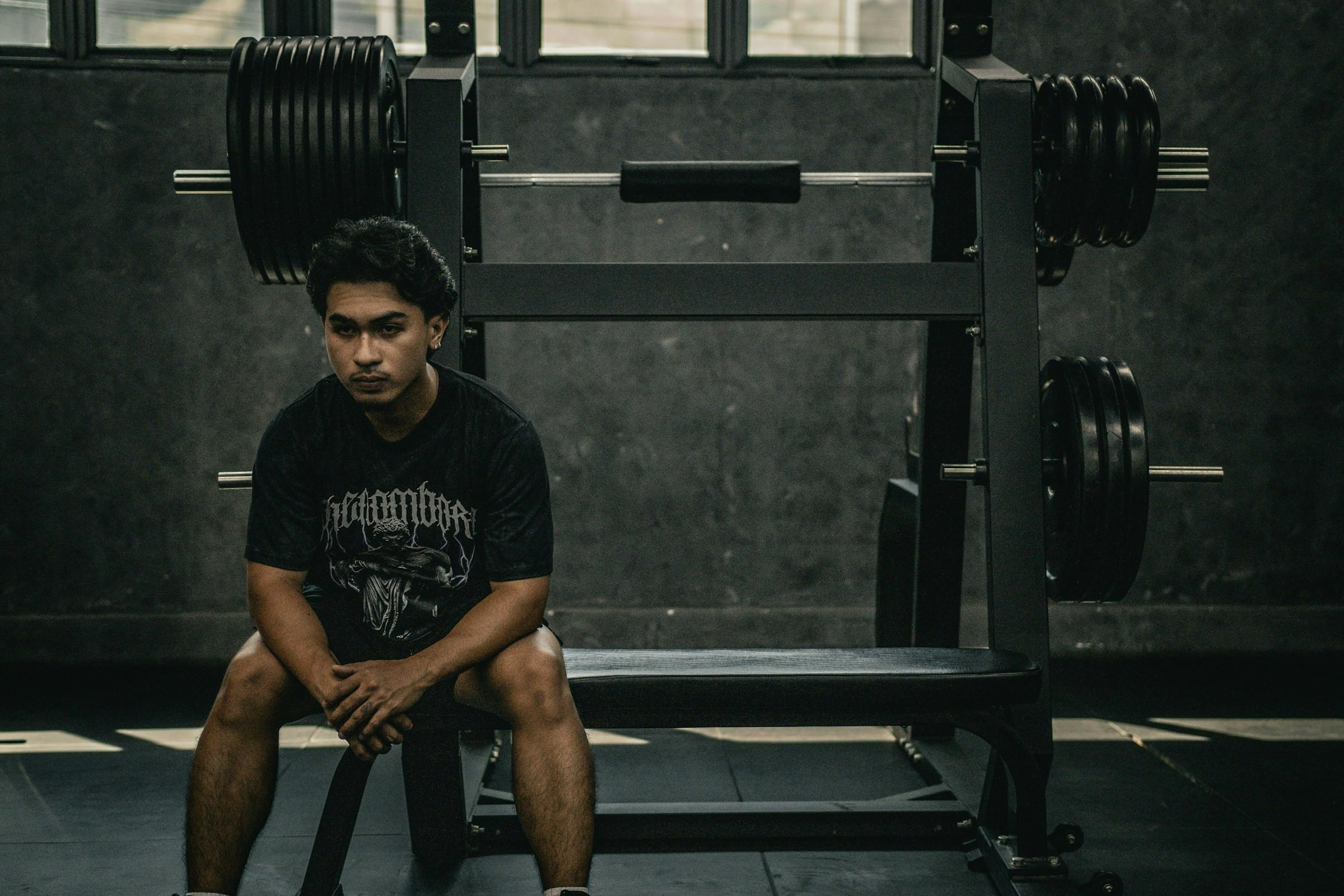Best Diet for Muscle Growth: What to Eat to Build Lean Muscle Faster
By Editorial Team
Reviewed by Dr. Jossy Onwude, MD
Published Jul 4, 2025
10 min read

When it comes to building muscle, most people immediately think about lifting weights, going to the gym, or doing intense workout routines. And while training is crucial, there's another piece of the puzzle that’s just as important—your diet.
Think of it like building a house. You can have the best tools and blueprints (your workouts), but if you don’t have the right materials (your nutrition), the house won’t come together. This article will walk you through everything you need to know about the best diet for muscle growth—how many calories you should eat, the role of protein, carbs, and fats, when to eat, which foods help the most, and how to avoid common mistakes.
Let’s break it down in a way that’s simple, practical, and backed by science.
Why Your Diet Is Just As Important As Your Workouts
Every time you exercise—especially when doing strength training or resistance workouts—you’re creating small tears in your muscle fibers. That might sound bad, but it’s actually a good thing. Your body repairs those tiny tears during rest and recovery, which is what leads to bigger and stronger muscles over time.
But here’s the catch: your body can’t rebuild muscle without the right building blocks. Those building blocks come from food, especially protein, healthy fats, and complex carbohydrates. Without enough of these nutrients, you’ll struggle to recover properly, and your gains will be much slower. In some cases, you might even lose muscle instead of gaining it.
So while training breaks down muscle, your diet rebuilds it—and that rebuilding is what leads to actual growth.
Calories: The Foundation of Muscle Growth
If you want to build muscle, you need to eat more than your body burns each day. This is called a caloric surplus. But that doesn’t mean you should just eat anything and everything.
The trick is to eat just enough extra calories to support muscle growth without gaining a bunch of unwanted fat. Most people do well with a surplus of around 250 to 500 calories per day above their maintenance level. This provides enough energy for muscle repair and new growth without overdoing it.
To find your maintenance calories, you can use an online calculator that takes into account your age, weight, height, gender, and activity level. Once you know your maintenance number, just add a bit more—start small and adjust as needed based on how your body responds.
If you’re gaining more fat than muscle, cut back a little. If you're not gaining anything at all, you might need to eat a bit more.

Understanding Macros: Protein, Carbs, and Fats
Muscle growth relies on three major nutrients: protein, carbohydrates, and fats. These are called macronutrients, and each one plays a different role in helping you build muscle efficiently.
Protein: The Muscle Builder
Protein is the most important nutrient when it comes to building muscle. That’s because it contains amino acids, which are the raw materials your body uses to repair and build new muscle tissue.
How much protein do you need? A good general guideline is about 1.6 to 2.2 grams of protein per kilogram of body weight per day. If you're more familiar with pounds, that's roughly 0.7 to 1 gram of protein per pound of body weight. So if you weigh 150 pounds, aim for around 105 to 150 grams of protein per day.
You don’t need to eat all your protein in one sitting. In fact, spreading your intake throughout the day—at each meal and snack—helps your body use it more effectively. Aim for 20 to 40 grams of protein per meal.
The best sources of protein include lean meats like chicken and turkey, fish, eggs, dairy products like Greek yogurt and cottage cheese, legumes, tofu, tempeh, and protein powders like whey or plant-based blends.
Carbohydrates: The Fuel You Need
Carbs are your body’s preferred source of energy, especially when you’re training hard. They help replenish glycogen, which is the fuel your muscles use during exercise. Without enough carbs, you may feel sluggish, and your performance in the gym can suffer.
For muscle growth, carbs are crucial. They not only fuel your workouts but also support recovery by reducing muscle breakdown and helping deliver nutrients to your muscle cells.
Good carb sources include whole grains like oats, brown rice, and quinoa, starchy vegetables like potatoes and sweet potatoes, legumes like beans and lentils, and fruits. You don’t need to fear carbs—just choose mostly unprocessed, nutrient-dense ones.
Timing matters too. Eating carbs before a workout gives you energy to train harder, while carbs after your workout help replenish what you’ve burned and kickstart recovery.
Fats: The Hormone Helpers
Fats often get a bad reputation, but they play a major role in muscle growth, especially when it comes to hormone production. Testosterone, for example, is crucial for building muscle, and eating healthy fats supports its production.
You don’t need as much fat as protein or carbs, but you definitely shouldn’t cut it out. About 20–35% of your total daily calories should come from fat. Focus on healthy fats like those found in avocados, olive oil, nuts, seeds, and fatty fish like salmon.
Just keep in mind that fat is calorie-dense, so portion size matters.
Micronutrients That Support Muscle Growth
While macronutrients often get all the attention, micronutrients (vitamins and minerals) are essential for muscle recovery and overall performance.
For example, magnesium supports muscle contraction and relaxation, zinc plays a role in protein synthesis and immune function, and vitamin D is important for muscle strength and hormone balance. Iron helps deliver oxygen to your muscles, which you need during workouts.
You can get most of these nutrients by eating a wide variety of whole foods—especially fruits, vegetables, whole grains, lean proteins, and healthy fats. There’s usually no need for fancy supplements if your diet is balanced and nutrient-rich.
Best Foods for Muscle Growth
There’s no one perfect food that builds muscle, but certain foods provide more of what your body needs. A well-rounded muscle-building diet includes:
- Lean meats like chicken breast, turkey, and lean cuts of beef
- Fatty fish like salmon and tuna
- Eggs and dairy like Greek yogurt, milk, and cottage cheese
- Whole grains like oats, quinoa, and brown rice
- Legumes like lentils, black beans, and chickpeas
- Fruits like bananas, berries, and oranges
- Vegetables like spinach, broccoli, and sweet potatoes
- Healthy fats from avocados, nuts, seeds, and olive oil
The key is balance—getting the right mix of protein, carbs, and fats in every meal.

What About Supplements?
Supplements can help fill in the gaps, but they’re not required. Whole foods should always come first.
That said, some supplements are well-studied and can be helpful:
- Protein powder is a convenient way to meet your daily protein needs, especially if you're short on time or appetite. Whey protein is fast-digesting and great post-workout, while casein is slow-digesting and better at night.
- Creatine monohydrate is one of the most researched supplements in the world. It helps increase strength, power, and muscle mass. It’s safe, affordable, and effective.
- Omega-3 supplements (like fish oil) may help reduce inflammation and support recovery.
- Multivitamins can be useful if your diet is lacking in key micronutrients, but they’re not a substitute for real food.
Most other supplements, like BCAAs or testosterone boosters, aren’t necessary for most people and may not deliver real benefits.
When You Eat Matters Too
It’s not just what you eat—it’s also when you eat that can affect muscle growth.
Eating before a workout gives you energy to perform at your best. A balanced pre-workout meal 1 to 2 hours before training should include carbs and protein—something like chicken and rice or oats with protein powder.
After your workout, your muscles are primed to absorb nutrients. Within an hour or so after training, try to eat a meal or shake with protein and fast-digesting carbs, like a banana and a protein shake, or chicken and sweet potatoes.
Throughout the day, aim to eat every 3 to 4 hours to keep a steady stream of nutrients flowing to your muscles. This helps with recovery, reduces muscle breakdown, and makes it easier to hit your daily calorie and protein goals.
Can You Gain Muscle Without Gaining Fat?
Yes—but it takes a careful approach. This is often called a lean bulk, and the goal is to build muscle while keeping fat gain to a minimum.
You’ll want to:
- Eat in a small calorie surplus (about 250–300 calories above maintenance)
- Get enough protein every day
- Strength train consistently and progressively
- Monitor your progress regularly (photos, measurements, strength levels)
- Adjust your calories as needed
Trying to gain too quickly often leads to excess fat, while gaining too slowly might mean you’re not eating enough to build new muscle. Aim for slow, steady gains—about 0.25 to 0.5 pounds per week.
Tips for Sticking to a Muscle-Building Diet
Staying consistent is the hardest part for most people. Here are a few simple tips:
- Plan and prep your meals ahead of time so you’re not stuck making last-minute food decisions
- Eat foods you enjoy so you’re more likely to stick with your plan
- Add calorie-dense snacks if you have a hard time eating enough (think trail mix, protein shakes, nut butter, avocado toast)
- Don’t skip meals, especially breakfast or post-workout meals
- Be flexible, not perfect. It’s okay to enjoy treats in moderation
- Track your progress with a food journal, app, or simple notes to stay on track
If you’re vegetarian or vegan, muscle gain is still totally possible. You’ll just need to plan your meals carefully to ensure you’re getting enough protein from a variety of sources like legumes, tofu, tempeh, lentils, quinoa, and plant-based protein powders.
Common Mistakes That Hurt Muscle Gains

Many people unknowingly sabotage their muscle growth by making small mistakes. Here are a few to watch out for:
- Not eating enough, especially protein or calories in general
- Over-relying on supplements instead of focusing on real food
- Skipping carbs, which can limit workout energy and recovery
- Inconsistent eating, like skipping meals or not planning ahead
- Neglecting sleep, which is when much of the muscle repair happens
- Training too much without recovery, which can lead to burnout or muscle loss
Final Thoughts: Build Muscle Smarter
Building muscle isn’t just about lifting weights—it’s about fueling your body with the right nutrients, at the right times, in the right amounts. If you want to grow lean, strong, and healthy muscle, you need to eat with intention.
Start by making sure you’re eating slightly more than you burn, focusing on protein-rich meals with balanced carbs and fats. Don’t neglect micronutrients, and give your body the sleep and recovery time it needs to repair and grow.
Consistency over time—combined with smart training and smart eating—is what creates real, lasting muscle.
FAQs: Muscle Growth and Diet
1. What should I eat before and after a workout to build muscle?
Before your workout, eat a mix of carbs and protein, like oats with protein powder or rice and chicken. Afterward, refuel with fast-digesting carbs and protein to boost recovery.
2. Can I build muscle on a vegan or vegetarian diet?
Yes. It takes more planning, but plant-based protein from legumes, tofu, lentils, tempeh, and soy can fully support muscle growth.
3. Is intermittent fasting bad for muscle growth?
It depends. If you get enough protein and calories during your eating window, you can still build muscle, but it may be harder. Frequent meals are generally more effective for optimal growth.
4. How long does it take to see muscle growth from dietary changes?
With consistent training and eating, most people start to see noticeable changes in 4–8 weeks. Full transformations may take several months to a year.
5. Can I build muscle and lose fat at the same time?
Yes, especially if you're new to training or returning after a break. This is called body recomposition and works best with a high-protein diet and strength training program.
Share this article

Low Sodium Diet: Simple Guidelines, Food Lists, and Tips for Better Health
Lilian E.
Sep 30, 202512 min read

Does Coconut Milk Affect Blood Sugar Levels? A Complete Guide for Diabetes and Healthy Living
Karyn O.
Sep 29, 202510 min read

5 Best Bone Broths for Health, Nutrition, and Gut Support (Nutritionist-Backed Guide)
Karyn O.
Sep 24, 202511 min read

Best-in-class care is a click away
Find everything and everyone you need to reach your metabolic health goals, in one place. It all makes sense with Meto.
Join Meto